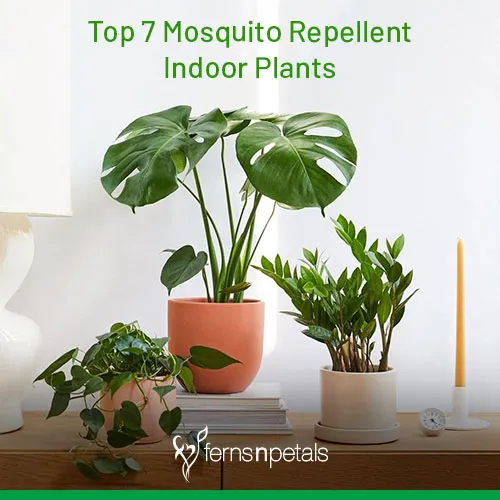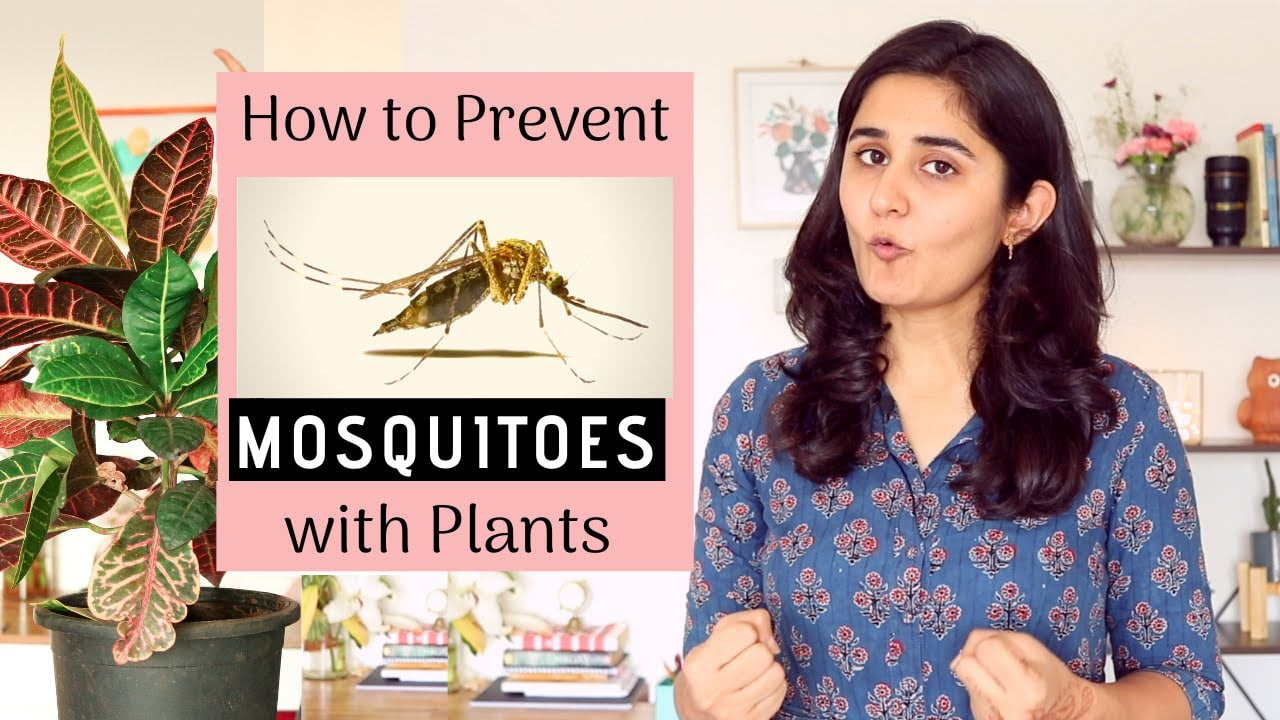To avoid mosquitoes from indoor plants, keep soil dry, empty standing water, and use mosquito repellent plants. Overwatering creates breeding grounds for mosquitoes.
It’s crucial to manage indoor plant watering to prevent mosquito infestations. Additionally, consider using citronella, mint, and lemongrass plants to repel mosquitoes naturally. These plants not only add beauty to your indoor space but also help keep pesky mosquitoes at bay.
By incorporating these tips and plants into your indoor plant care routine, you can create a mosquito-free environment and enjoy a healthier, more pleasant living space.
Indoor Plants And Mosquito Issues
Indoor plants not only add natural beauty to our homes but also contribute to a healthier indoor environment. However, they can also inadvertently attract mosquitoes, creating potential breeding grounds for these pesky insects. To maintain a mosquito-free home, it’s important to understand the relationship between indoor plants and mosquito issues.
Identifying The Attraction
Some indoor plants release volatile compounds that attract mosquitoes. Marigold, mint, and lemongrass are examples of plants that produce these compounds. Stagnant water in plant saucers or containers also attracts mosquitoes as it provides a suitable breeding ground.
Common Breeding Grounds
Wet soil in potted plants and containers can become a common breeding ground for mosquitoes. Additionally, indoor gardens with flowering plants can attract mosquitoes and flies. To prevent this, consider introducing plants with no flowers or using natural repellents like citronella candles to deter mosquitoes.
Water Management For Plant Care
Proper water management is essential for maintaining healthy indoor plants and preventing mosquito infestations. Overwatering and poor drainage can create a conducive environment for mosquitoes to breed, posing a threat to both plants and human health. By implementing effective water management techniques, you can minimize the risk of mosquito infestations and promote the well-being of your indoor plants.
Preventing Overwatering
Overwatering can lead to water stagnation in the soil, creating an ideal breeding ground for mosquitoes. To prevent overwatering, it’s crucial to monitor the moisture levels of the soil regularly. Use a moisture meter to determine the watering needs of each plant, and only water when the soil is dry to the touch. Avoid excessive watering, as it can not only attract mosquitoes but also cause root rot and other plant diseases.
Proper Drainage Techniques
Ensuring proper drainage is essential for preventing water accumulation in plant pots, which can attract mosquitoes. When selecting pots for your indoor plants, choose containers with drainage holes to allow excess water to escape. Additionally, consider adding a layer of gravel or small stones at the bottom of the pot to facilitate drainage. This will help prevent water from pooling at the bottom, reducing the risk of mosquito breeding.
Natural Mosquito Repellent Plants
Indoor plants not only enhance the aesthetic appeal of your home, but they can also act as natural mosquito repellents. By strategically choosing certain plants, you can effectively keep mosquitoes at bay without the need for harmful chemicals.
Citronella And Lemongrass
Citronella and Lemongrass are two popular plants known for their potent mosquito-repelling properties. Citronella contains citronellal and geraniol, which are natural repellents, while Lemongrass emits a strong citrus scent that deters mosquitoes.
Marigold, Mint, And Catnip
Marigold, Mint, and Catnip are also effective in repelling mosquitoes. Marigolds contain pyrethrum, a natural insect repellent, while Mint’s strong aroma masks the scents that attract mosquitoes. Catnip, on the other hand, contains nepetalactone, which is more effective than DEET, a common mosquito repellent.
Introducing these natural mosquito repellent plants into your indoor garden not only adds greenery to your living space but also provides a non-toxic and eco-friendly solution to keep pesky mosquitoes at bay.

Credit: www.fnp.com
Alternative Mosquito Deterrents
To avoid mosquitoes from indoor plants, consider using natural deterrents like citronella, mint, and lemongrass. These plants emit scents that repel mosquitoes effectively, keeping your indoor space bug-free without harmful chemicals or sprays. Regularly check for standing water in plant saucers to prevent mosquito breeding.
Alternative Mosquito DeterrentsIndoor plants can be a great addition to any home, but they can also attract mosquitoes. Fortunately, there are alternative mosquito deterrents that you can use to keep these pesky insects away. Here are some effective methods you can try:Essential Oils
Essential oils are a natural and safe way to repel mosquitoes. Some of the most effective oils include citronella, peppermint, and lavender. You can add a few drops of these oils to a diffuser or mix them with water to create a spray. Place the diffuser or spray bottle near your plants to keep mosquitoes away.Diy Mosquito Repellent Solutions
There are many DIY mosquito repellent solutions that you can make at home using ingredients that you probably already have. For example, you can mix equal parts of apple cider vinegar and water and spray it on your plants. You can also create a mixture of garlic and water and spray it on your plants. Another effective solution is to mix a few drops of dish soap with water and spray it on your plants. This will create a barrier that mosquitoes cannot penetrate.In addition to essential oils and DIY solutions, there are also many mosquito repellent plants that you can grow indoors. Some of these plants include citronella, catnip, and rosemary. These plants have natural oils that repel mosquitoes and other insects.By using these alternative mosquito deterrents, you can enjoy the benefits of indoor plants without having to deal with annoying mosquito bites.Physical Barriers And Traps
To avoid mosquitoes from indoor plants, use physical barriers like mesh screens on windows and traps such as sticky fly traps near the plants. Prevent stagnant water in plant saucers to deter mosquito breeding. Incorporate repellent plants like citronella and mint to keep mosquitoes at bay indoors.
Physical Barriers and Traps are effective ways to prevent mosquitoes from infesting indoor plants. Sticky Fly Traps are a popular option that uses a glue-like substance to trap flying insects, including mosquitoes. Mosquito Nets and Screens are another option that physically blocks mosquitoes from reaching the plants. These can be placed over the plants or used as a barrier around the room.When using Sticky Fly Traps, it’s important to place them strategically around the plant to catch the most insects. Mosquito Nets and Screens should be properly installed to ensure no gaps or holes are present for mosquitoes to enter.Another option is to use a combination of physical barriers and traps. This can help to create a multi-layered defense against mosquitoes. For example, placing a Mosquito Net over the plant and using Sticky Fly Traps around the room can significantly reduce the chances of a mosquito infestation.It’s important to note that physical barriers and traps are not a one-time solution. They require regular maintenance and monitoring to ensure they are working effectively. Sticky Fly Traps need to be replaced once they are full, and Mosquito Nets and Screens should be checked for any holes or damage.Overall, utilizing physical barriers and traps can be an effective way to prevent mosquitoes from infesting indoor plants. By using these methods in combination with other preventative measures, such as removing standing water and using mosquito repellent plants, you can create a mosquito-free environment for your indoor plants.
Credit: m.youtube.com
Chemical-free Mosquito Control
When it comes to keeping mosquitoes at bay without the use of harmful chemicals, there are several natural methods that can be applied to indoor plants. These methods not only help in controlling mosquito populations but also ensure the safety of the indoor environment.
Oil Treatments For Larvae
One effective way to control mosquito larvae in indoor plants is by using oil treatments. Applying a thin layer of neem oil or olive oil on the surface of the soil can suffocate the larvae and prevent them from maturing into adult mosquitoes.
Safe Insecticides For Indoor Use
For a chemical-free approach to controlling adult mosquitoes around indoor plants, using safe insecticides derived from natural sources can be an effective solution. Products containing pyrethrin or citronella oil can help repel and eliminate mosquitoes without posing harm to the plants or the indoor environment.
Cultural Practices To Deter Mosquitoes
Mosquitoes can be a nuisance, especially when they infiltrate our indoor spaces. However, there are cultural practices you can implement to deter mosquitoes from indoor plants. By introducing non-flowering plants, and maintaining a regular cleaning and maintenance routine, you can create an environment that is less conducive to mosquitoes.
Introducing Non-flowering Plants
Non-flowering plants can be an effective addition to your indoor garden to deter mosquitoes. These plants, such as citronella, mint, and lemongrass, contain natural compounds that mosquitoes find repulsive. By strategically placing these plants around your indoor space, you can create a natural barrier to discourage mosquitoes from lingering.
Regular Cleaning And Maintenance
Regular cleaning and maintenance of indoor plants can significantly reduce the presence of mosquitoes. Stagnant water in plant saucers, pots, or trays can become a breeding ground for mosquitoes. Ensure that you promptly remove any standing water and regularly inspect your plants for signs of overwatering or decay. Additionally, pruning and removing dead leaves can help prevent moisture buildup, which in turn deters mosquitoes from inhabiting your indoor garden.

Credit: mosquitonixhouston.com
Monitoring And Maintenance
Regular inspection and long-term prevention strategies are crucial for effectively avoiding mosquitoes from indoor plants. By keeping a close eye on your plants and implementing proactive measures, you can create an environment that is unattractive to mosquitoes.
Regular Inspection
Regularly inspect your indoor plants for any signs of standing water, which can serve as breeding grounds for mosquitoes. Ensure that the soil is not waterlogged and there are no water-filled trays or saucers under the pots. Additionally, check for any decaying plant matter or organic debris that may attract mosquitoes.
Long-term Prevention Strategies
Implement long-term prevention strategies to keep mosquitoes at bay. Consider using mosquito-repellent plants such as citronella, catnip, or rosemary to deter mosquitoes from infesting your indoor plants. Furthermore, maintaining proper drainage in the pots and regularly changing the water in vases can help prevent mosquito breeding.
Frequently Asked Questions
Do Indoor House Plants Attract Mosquitoes?
Indoor plants themselves don’t attract mosquitoes. Overwatering can create breeding grounds. Manage indoor plant watering carefully.
What Kills Mosquito Larvae But Not Plants?
Olive oil and vegetable oil kill mosquito larvae without harming plants by suffocating the larvae.
Is There An Indoor Plant That Repels Mosquitoes?
Yes, certain indoor plants like citronella, mint, and lemongrass can help repel mosquitoes effectively.
Conclusion
To keep mosquitoes away from indoor plants, focus on proper watering to prevent stagnant water. Consider using repellent plants like citronella, mint, and lemongrass. Regularly check for larvae and use oils like olive or vegetable oil to eliminate them. By following these steps, you can create a mosquito-free indoor plant environment.
Related posts:

I’m MD Tanvir, and I bring years of expertise gained from working closely with pest control companies to the forefront. My journey in the industry has inspired me to launch Bug Battler, a platform aimed at equipping people with the know-how to combat pests autonomously. Through Bug Battler, I aim to empower individuals with practical insights to tackle pest infestations effectively.

